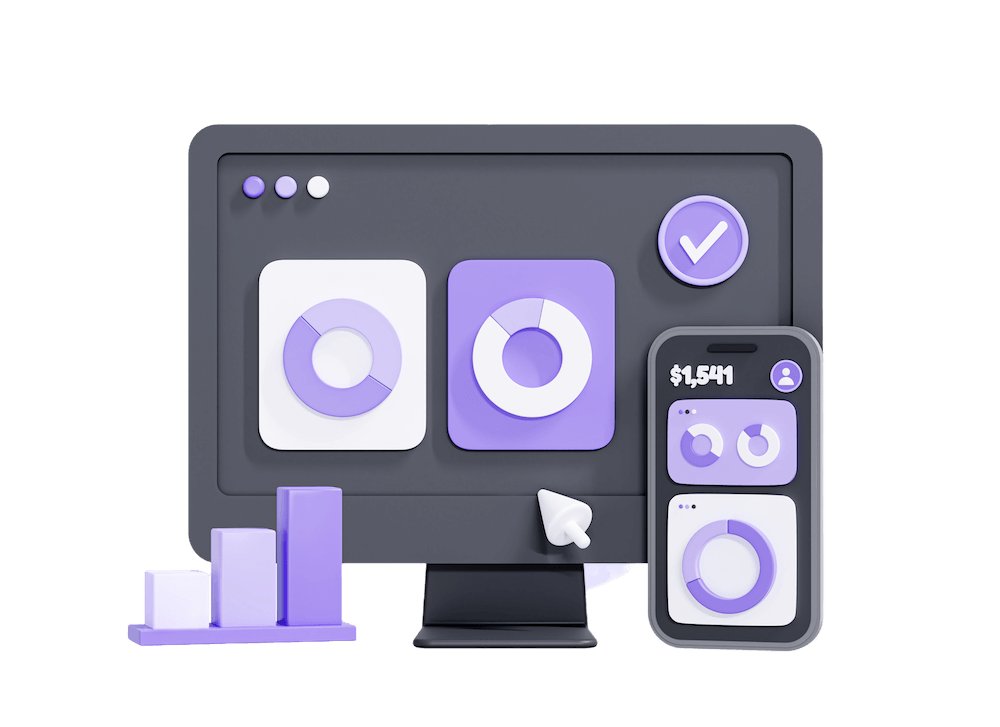
Some financial goals can seem more achievable than others. Improving your credit score may seem within reach, whereas buying a house can seem near-impossible. Whatever your goals are, you could be closer to realising them than you may think. By making a few changes to your spending habits, you could slowly start to improve your financial position.
Some people find it easy to budget, while others struggle to combat impulse purchases. Whatever your spending habits, it’s a good idea to acknowledge them, find the root cause and come up with ways you can improve how you spend and save money.
Continue reading to find out what influences our spending habits, what categories they fall into and how you can improve your spending patterns and save money.
What are spending habits?
Spending habits are the various ways that you regularly spend your money. They may be good, bad or neutral. For example, a good habit would be to pay your bills on time every month. A bad habit might be buying a takeaway whenever you feel like it, even if that means a couple of times a week. Neutral habits are when you make purchases that won’t make a massive impact on your finances, such as buying a newspaper every morning.
How and where you spend money influences whether your spending habits are good, bad or neutral. You might splurge on unnecessary purchases at the beginning of the month after you’ve been paid and then find you have to cut back on your spending for the remainder of the month. This leads to bad spending habits as you are influenced by the money that has just landed in your account rather than what you actually need and your budget.
Your spending habits can change and develop over time as your financial position evolves. You may also find yourself with different priorities and responsibilities that require you to adapt your spending and saving. For example, moving from renting to buying a property can have a significant financial impact, as can getting married and having children.
An effective budget helps you to understand your ongoing and outgoing funds. You can keep track of how much of your income should go to living expenses, as well as to your savings accounts and debt payments. It’s a good idea to pay your bills on time and budget throughout the month whilst giving yourself an allowance for a few treats.
How do spending habits form?
There are various factors that can influence your spending habits. The environment that you grow up in creates a foundation for how you prioritise your spending. For example, if your parents didn’t budget when you were growing up and encouraged you to spend your pocket money as soon as you received it, the likelihood is that you have unhealthy spending habits as an adult. Alternatively, if your parents were careful with their money, you might have more frugal habits.
Your friends can also have a major influence over how and where you spend your money. In order to fit in, most people accept social invitations. This can mean you spend more on eating meals out, going to bars and travelling than you would have otherwise. You might be more inclined to buy certain types of clothes and gadgets due to trends that your friends follow too.
The media has a big impact on most people’s money habits. You might buy certain products because social media influencers encourage you to or because you see lots of articles on the subject.
Reasons for changing spending habits
You may find yourself changing your spending patterns if your circumstances change or you create new financial goals. There are many reasons why people overspend, but if you can identify your triggers, it should be easier to cut back and create a better budget.
 If you’re hoping to start a family, you may cut back on your leisure spending so that you have a decent-sized nest egg. You might also reduce your bad financial habits (such as splurging on takeaways and clothes) if you’re saving up for a house or want to do some renovations on your current property.
If you’re hoping to start a family, you may cut back on your leisure spending so that you have a decent-sized nest egg. You might also reduce your bad financial habits (such as splurging on takeaways and clothes) if you’re saving up for a house or want to do some renovations on your current property.
You will have to review your spending habits if they start to become an issue. There are various ways you can stop regular overspending, such as creating a budget to help you keep an eye on your finances more and resisting temptation if you don’t really need a product.
On the flip side, you may increase your frivolous spending if you have more money to spare. This could be due to any number of factors, such as a pay rise or because you have downsized your property.
8 ways to change your spending habits and save money
1. Budgeting and allocating
The best way to create a budget is to measure your regular income and outgoing expenses. Once you’ve worked out how much you need to spend on essentials such as utilities and food, you can calculate how much you spend on leisure activities such as going to the cinema and out to restaurants. You can also work out how much you should put into savings or to pay off debts.
2. Evaluate what you want to buy
There are some expenses that are a necessity, whilst others are a luxury. The majority of things can be separated into what you have to spend money on (such as accommodation and food) versus what you want (such as takeaways and alcohol). Once you can recognise the difference, it’s easier to divide your spending. You’ll need to give a bigger allowance and priority to things you need, and any leftover funds can be put towards things you want.
 3. Meal planning
3. Meal planning
By planning your meals in advance, you’re less likely to find yourself in a position where you don’t know what to cook and decide to order a takeaway instead. You can also shop around for ingredients that are more affordable if you know what you need to buy. Going into supermarkets with a shopping list also reduces unplanned purchases, which can save you money.
4. Switching energy/utility providers
Just because you’ve been a loyal customer of an energy provider doesn’t mean the company is giving you the best price on the market. It’s a good idea to shop around when you come to the end of your existing deal to find out if you can save money by switching to another provider.
5. Managing subscriptions
It’s very easy to sign up for new subscriptions, but you may not realise how much you’re spending on a monthly or annual basis. It’s a good idea to ask yourself whether you need to be subscribed to as many streaming channels as you are or whether you actually read the monthly magazine that you are subscribed to. Reducing your number of subscriptions or looking at cheaper alternatives is a quick and easy way to save money.
6. Cut back on luxuries
If you sit down and look at your finances, there are probably going to be a number of luxuries that you can afford to live without. It could be anything from reducing the number of trips to the cinema you have in a month or holidaying in your home country rather than abroad. You could also make small changes, such as stop spending money on expensive brands and start buying supermarket-own alternatives during your weekly food shop.
7. Give up credit card
In most cases, people spend more money with a credit card than if they were shopping with a debit card or cash. The money may not seem ‘real’ because you don’t have to repay back the finances straight away. Depending on your account, you may have a much larger spending limit than what you would have if you had to spend money directly out of your bank account.
8. Use a prepaid card
It’s easier to keep an eye on how much you’re spending if you have a prepaid card. You know exactly how much money you have to spend and there’s no overdraft, which means there’s no chance of overspending. You can top up the card when you reach the spending limit, which makes it easier to assign funds to different bills and leisure activities.
Order your Prepaid Card today
Summary
Good spending habits can take time to develop, but they can have a significant impact on your long-term financial well-being. If you take the time to calculate your incoming and outgoing spending, it makes it easier to understand your personal finances and create a budget.
Budgeting can help you gain financial freedom so that you have enough money to cover all your living expenses. Once you’ve achieved this, you can put money aside in a savings account and emergency fund so that you are financially protected in the future too.


